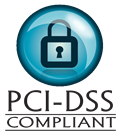There are several specific instances in which your student loan may be canceled or discharged. These are as follows:
Click each link for more information
back to top
You may be eligible for a TPD Discharge on your federal student loans if you are unable to engage in any substantial gainful activity by reason of any medically determinable physical or mental impairment that:
- can be expected to result in death,
- has lasted for a continuous period of not less than 60 months,
- can be expected to last for a continuous period of not less than 60 months; or
- has been determined by the Secretary of Veterans Affairs to make you unemployable due to a service-connected disability.
Download, fill out and return the Total and Permanent Disability Form to FAMS begin the process.
Once receives the disability discharge application, they will review the information on the discharge application and determine if discharge is applicable for a given borrower. can either deny or approve any given discharge application.
will send out a letter to you explaining that your request for discharge was denied, stating the reason for the denial.
Reasons can vary for denial from not being dated by the physician or the borrower, to disability does not substantiate a discharge.
will send out a letter to the borrower explaining that discharge request passed initial review by and that loans will be forwarded to Department of Education for further review and monitoring.
Once the U.S. Department of Education receives the disability discharge application, they will review the application and determine if the documents submitted justify a full discharge.
Once the loans have been discharged, a three year post discharge monitoring period begins. The borrower will need to keep communications with Department of Education for the 3 year period to insure that nothing changes with discharge. At any time, at the discretion of the Department, loans can be reinstated for collection of the balance if changes occur.
back to top
If the borrower is deceased, the federal student loan may be discharged. In the case of a Parent PLUS loan, the loan may be discharged if the responsible party or the student is deceased. Please fill out the Deceased Notification Form with as much information on the account as possible. You can also use this form to upload the death certificate of the deceased. If the death certificate is not available, you can provide the city, state, and the last name of the deceased at time of death.
back to top
If the school closed while you were attending, you may be able to have your student loans discharged. Download, fill out and return the
School Closure Form to begin the process. If you have any questions,
Contact FAMS for assistance.
back to top
This is not an automatic process; you must prove to the bankruptcy court that repaying your student loan would cause undue hardship.
If you file Chapter 7 or Chapter 13 bankruptcy, you may have your loan discharged in bankruptcy only if the bankruptcy court finds that repayment would impose undue hardship on you and your dependents. This must be decided in an adversary proceeding in bankruptcy court. Your creditors may be present to challenge the request. The court uses this three-part test to determine hardship:
- If you are forced to repay the loan, you would not be able to maintain a minimal standard of living.
- There is evidence that this hardship will continue for a significant portion of the loan repayment period.
- You made good-faith efforts to repay the loan before filing bankruptcy (usually this means you have been in repayment for a minimum of five years).
Your loan will not be discharged if you are unable to satisfy any one of the three requirements. If your loan is discharged, you will not have to repay any portion of your loan, and all collection activity will stop. You also will regain eligibility for federal student aid if you had previously lost it.
back to top
You may be eligible for a discharge of your FFEL Program loan in these circumstances:
- Your school falsely certified your eligibility to receive the loan based on your ability to benefit from its training, and you did not meet the ability to benefit student eligibility requirements.
- The school signed your name on the application or promissory note without your authorization or the school endorsed your loan check or signed your authorization for electronic funds transfer without your knowledge, unless the proceeds of the loan were delivered to you or applied to charges owed by you to the school.
- Your loan was falsely certified because you were a victim of identity theft.
- The school certified your eligibility, but because of a physical or mental condition, age, criminal record, or other reason you are disqualified from employment in the occupation in which you were being trained.
To apply for this discharge, download the
appropriate form for your situation. When the form has been filled out completely
Contact FAMS to return the document or begin the process of requesting discharge.
back to top
You may be eligible for a discharge of your FFEL Program loan if you withdrew from school, but the school did not pay a refund that it owed to , as appropriate.
Only the amount of the unpaid refund will be discharged. You may qualify for this partial discharge whether the school is closed or open. Contact FAMS for more information.
back to top
After reviewing the conditions, download and fill out the appropriate forms. You can return them using the Discharge and Dispute Document Upload Form or by Fax or Mail
Certain types of cancellations are available to military personnel, teachers, nurses, child care providers, or borrowers affected by the closure of a school. Provisions differ depending on the type of loan you have.
back to top
Yes. Until you hear whether your discharge has been approved, you should continue making payments on your loan to prevent it from going into default or accruing (accumulating) additional interest. However, note the following:
If you have a Direct Subsidized Loan, Direct Unsubsidized Loan, Federal Subsidized Stafford Loan, or Federal Unsubsidized Stafford Loan, you can be granted forbearance. Your loan servicer should grant forbearance until a decision is made on your application. If forbearance is granted, no one is permitted to collect on your loan until it is determined whether you are eligible for a loan discharge.
back to top
If you qualify for a complete discharge of your loan, you are no longer obligated to make loan payments. Depending on the type of loan discharge program for which you may be eligible, may be required to refund to you some or all of the payments you made on the loan. In addition, any adverse credit record related to a default might be deleted, and no tax refund offset or wage garnishment will take place to collect on the discharged loan. If the loan was in default, the discharge may erase the default status. If you have no other defaulted loans, you regain eligibility for federal student aid.
Note: In some cases, your school might be required to refund a portion of the FFEL Program loan to (for example, you withdrew from school within a time frame that required a refund of loan funds). If your school fails to make that refund, that portion of your loan will be canceled, but you will be responsible for paying any remaining amount.
back to top
For most discharges, the final decision on whether to discharge the loan cannot be appealed. The two exceptions are false certification and forged signature discharges. If you receive these types of discharges, you may ask to review the denial.
If your loan discharge is denied, you remain responsible for repaying the loan. Talk to your loan servicer about repayment options if you have a FFEL Program loan.
back to top
Yes. The fact that you didn't fully understand the implications of getting a loan, or the fact that it's been many years since you signed for the loan, does not mean that you do not have to pay.
back to top
You must repay your parent PLUS loan even if the student doesn't complete his or her education or can't find a job related to the program of study, or if you or the student is unhappy with the education. However, the loan may be discharged if the child for whom you borrowed dies, or if you die or become totally and permanently disabled.
We may discharge some or all of your loan in any of these circumstances:
- The school closed before the student completed the program.
- The school forged the signature on your promissory note or falsely certified that you were eligible for aid.
- The loan was falsely certified through identity theft.
- The student withdrew from school but the school didn't pay a refund that it owed. Check with the school to see how refund policies apply to federal aid at the school.
- The loan was discharged in bankruptcy claim. This is not an automatic process - you must prove to the bankruptcy court that repaying the loan would cause undue hardship.
Contact FAMS for more information. If you don't know who your loan servicer is, visit NSLDS.
back to top












